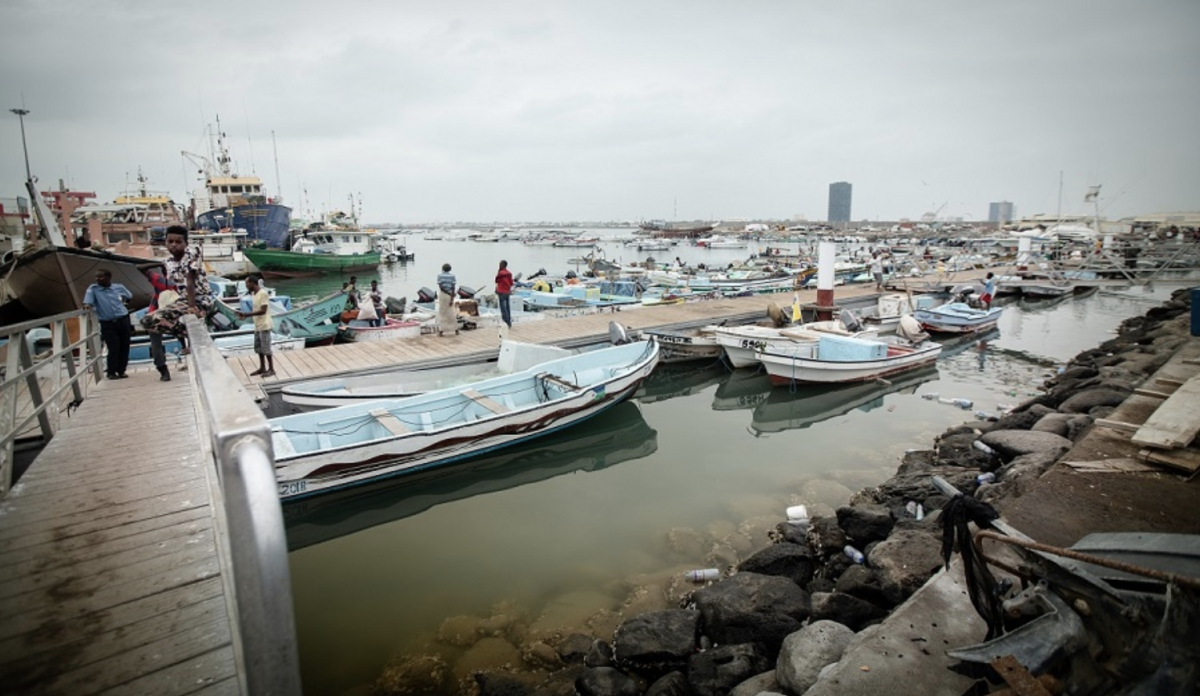Supporting Djibouti to advance their NAP Process
Project Overview
Apr 2014
Djibouti government sends delegation to NAP-GSP / PAG-PNA Africa Regional Training Workshop in Addis Ababa, Ethiopia
Mar 2015
NAP process is launched at training workshop with stakeholders from ministries, research institutes and civil society
Oct 2015
Djibouti submits its Intend Nationally Determined Contribution (INDC) to the Paris Agreement
Nov 2016
Djibouti ratifies the Paris Agreement
Apr 2017
Awareness raising and high-level consultation event held where Minister of Economy and Finance emphasizes the paramount importance of the NAP process to Djibouti’s development.
Nov 2017
A review looks at the institutional framework and existing initiatives on climate change adaptation, and identification of priority interventions
Dec 2018
Djibouti submits its Readiness proposal to the GCF, outlining a NAP project and request for finance
Country background, Sustainable Development Goals and Paris Agreement
The Republic of Djibouti is small coastal territory in the Horn of Africa. Its climate is semi-desert and is already becoming quite extreme on a regular basis. Records indicate an increase in average temperature of 1.5 °C since 1990, and the frequency of extreme events, in particular droughts and floods, has increased over the last three decades. In 1994 and 2004, two major floods affected more than 200,000 people, and in 2008 a severe drought wiped out half of the livestock population. An extended drought during 2008 - 2011 caused damages equivalent to 3 percent of country’s GDP during the same period. The economic impacts of this crisis persist today.
Djibouti has a small population of 900,000 but has a strategic geolocation that allows it to control the Strait of Babel Mandeb, an important gateway to the Horn of Africa and the wider region of East Africa. As a result, transport and logistics services have been the driver of the country's rapid and sustained economic growth over the last 15 years, which averaged 3.1 percent (GDP per capita) between 2001 and 2017. Despite this growth, Djibouti is still a poor country with roughly one fifth of the population living below the poverty line, and a ranking of 172 out of the 189 countries assessed in the Human Development Index (2018). With over 75 percent of the population living in coastal areas, coastal interventions should be prioritised. The two most acute climate risks facing the coastal zones are sea level rise and increased precipitation. These changes are expected to degrade and even eliminate tourism in several areas due to coastal erosion and damaged infrastructure, while variability in rainfall threatens the nomadic livestock farming. In addition, the female population is especially vulnerable to climate change. For example, women are traditionally responsible for water collection, which becomes significantly more difficult during droughts. Ensuring gender equality and climate change, and the way they interlink, is considered in every decision-making process at national and regional levels, is essential for Djibouti’s development and their pursuit of the Sustainable Development Goals.
Djibouti has initiated several adaptation actions to deal with climate change. The National Adaptation Action Program (NAPA), submitted to the UNFCCC in 2006, identified the sectors most vulnerable to the impacts of climate change as water resources, agriculture and livestock, forestry, and coastal and marine ecosystems. In 2014, the government adopted a new framework that sets a long-term direction - the 2035 vision – and in 2015 it submitted its Intended Nationally Determined Contribution (INDC) for the reduction of greenhouse gases under the Paris Agreement. The INDC, now an NDC, reaffirms Djibouti's commitment to adaptation, stating the following as priorities: (i) reducing vulnerability to drought; (ii) protection against sea level rise; (iii) improving access to water; (iv) the protection of biodiversity; and (v) strengthening the resilience of rural populations.
How has the NAP-GSP supported to date?
|
Organised a training workshop to launch the NAP process
|
During 30 March – 02 April 2015, a training workshop in Djibouti brought together 30 national experts from various ministries and departments as well as members of civil society. The training was delivered at the request of the Ministry of Housing, Urbanism and Environment to familiarise ministries on the NAP process, and to take stock of current climate change adaptation initiatives. Participants enhanced their understanding of the NAP process and the UNFCCC Technical Guidelines on NAPs and considered how to integrate climate change adaptation into national institutions and development planning. Activities included a stocktaking of the institutional set-up in Djibouti and of relevant initiatives that could form entry points for the NAP process.
|
|
Helped build capacity and facilitated access to additional climate finance
|
Djibouti prepared a Readiness and Preparatory Support Proposal to submit to the Green Climate Fund (GCF). The project - Mainstreaming Climate Change Adaptation into Djibouti’s Planning and Budgeting Processes – was first submitted to the GCF for review in December 2018, and is currently being refined before re-submitting to the GCF for further consideration. The proposal focuses on strengthening science-policy interface for agriculture, livestock, tourism and coastal areas in line with the sustainable development priorities for Djibouti (Vision 2035) as well as its medium-term development strategy.
|
Project Details
Level of intervention:
Key collaborators:
Project status:
Completed
Funding source:
News
> Djibouti advances its National Adaptation Planning process
30 March 2015, Djibouti - A four-day technical training on National Adaptation Planning (NAP) was held in Djibouti from 30 March to 2 April 2015. Participants enhanced their understanding of the NAP process and the UNFCCC Technical Guidelines on NAPs, and considered how to integrate climate change adaptation into national institutions and development planning.
30 March 2015, Djibouti - A training workshop for national ministries was organized by NAP-GSP to launch the NAP process nationally from 30 March – 02 April 2015 in Djibouti. Materials from the four-day workshop can be found in above link/
Country Initiatives
Reports and Publications
Project Brief / Fact Sheet
National Adaptation Plans in focus: Lessons from Djibouti
Submitted by esther.lake@undp.org on 24 April 2019

